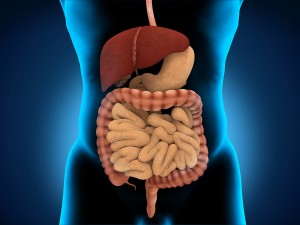OTC Drugs and Dementia
 Many commonly used OTC(over the counter drugs) have been linked with dementia(goo.gl/ihYhgc) according to a recent study from the University of Washington
Many commonly used OTC(over the counter drugs) have been linked with dementia(goo.gl/ihYhgc) according to a recent study from the University of Washington
The most commonly used drug linked to dementia was diphenhydramine, which is used in many popular products such as Benadryl, Nytol Sominex, Theraflu, Triaminic Allergy, plus many others. Also implicated where drugs containing chlorpheniramine (Aller-Chlor); oxybutynin (Ditropan) and tolterodine (Detrol) for overactive bladder; and the tricyclic antidepressants, such as doxepin or amitriptyline These drugs share a common feature with other OTC drugs in that they affect levels of acetylcholine(ACh), a common neurotransmitter in the body The short term changes such as confusion and loss of mental clarity are well known to prescribing physicians but the long term consequences and implications of this class of drugs are not recognized
Alzheimer's disease is a one of early senility or poor brain function and is associated with very low levels of acetylcholine(ACh) There is also evidence now that these changes may be irreversible because they produce permanent neurological changes
The relationship to poor brain function and dementia and drugs that control symptoms through lowering levels of ACh should be disturbing to those who rely on this class of drug to control their symptoms whatever they may be
The Study
To evaluate whether cumulative anticholinergic use is associated with a higher risk for incident dementia, researchers examined medical records from 3,434 participants 65 years or older with no dementia at study entry Initial recruitment occurred from 1994 through 1996 and from 2000 through 2003 and data through September 30, 2012 were also included in these analyses
Exposure to anticholinergic was determined from computerized pharmacy records Cumulative exposure was updated as participants were followed up over a 10-year period. About 20% of the population was found to be using anticholinergic drugs
During the evaluation period, 797 participants (23.2%) developed dementia with 637 of these (80%) developing Alzheimer disease A 10-year cumulative dose-response relationship was observed for dementia and Alzheimer disease. In other words, the higher the cumulative anticholinergic use, the greater the increased risk for dementia The highest risk threshold was taking the minimum daily effective dose of one the anticholinergic agents every day for 3 years
Based upon these results, the authors of the study propose efforts to increase awareness among health care professionals and older adults about the risk of the use of these drugs over time Even at low dosage or recommended levels chronic use of these drugs should be avoided
The Message
It seems self evident that anticholinergic use that is so prevalent in the general population should be kept to a minimum when attempting to reduce symptoms, looking for more alternative ways of managing their symptoms
Read More
The Salty Taste and Seafood
 A patient of mine told me about freshwater prawns that are farmed here locally. "What a great idea!", I said. All of us could benefit from this novel animal food since freshwater fish can be used by everyone regardless of their energy pattern. Freshwater fish will pacify everyone's physiology and promote energetic balance.
A patient of mine told me about freshwater prawns that are farmed here locally. "What a great idea!", I said. All of us could benefit from this novel animal food since freshwater fish can be used by everyone regardless of their energy pattern. Freshwater fish will pacify everyone's physiology and promote energetic balance.
Then I began thinking of possible problems. They'll probably have a weird taste. "No", my patient explained, "they taste even better than the saltwater prawns." They're probably hard to find, I thought. "And they are locally available just off Lake street." My mindbody began searching for other possible reasons but having no more objections, I thought it wouldn't be a bad idea to try them.
The next day I found myself ambitiously getting ready for my sojourn to the store to try this new found possible taste thrill. "Maybe I won't have enough time," I thought to myself. Nonsense, just go get them and if I don't like them, my daughter will eat them.
So I get the prawns and they're delicious! And now I noticed the same process that my mindbody goes through when confronted with something new. There is hesitancy about what might happen if I do something out of the ordinary. Something that's not in my realm of comfort. I'll have the saltwater prawns, thanks very much.
What gives? Why do I get so resistant to trying something new? I think the simple answer is the fear of the unknown. The uncertainty of predicting what lies ahead prevents us from moving off center and doing something different. For some the acceptance of change may be easy, for others it may be more difficult. And for all of us, there will be guaranteed issues that we balk at and say to ourselves, not today.
Freshwater prawns may be easy but perhaps changing our whole nutritional pattern may be something else. But the key to any change is realizing the fear and stepping through it. Everyone has their pet ways of resisting change. Predominant Vata people run away from fear, Pitta criticizes and becomes judgmental, justifying their resistance by talking themselves out of whatever they're fearing to change. And Kapha simply resists by inertia-just not going to do it. A sense of complacency becomes overwhelming.
Knowing this resistance to the uncertainty and realizing that we will always express our resistance is unique ways allows us to watch ourselves in the midst of our resistance and perhaps walk through it. But if not, it's OK. There will always be another day.
BTW since salt is hot and potentially inflammatory using Soma salt which is cooling is a good idea.
Read More
Ice and Disruption of Digestion
 I was in Portland having a microbrew with a friend and the conversation drifted to the taste of beer. Is it better at room temperature or icy cold? For me personally, I can't taste the hops flavor as well if the beer is cold and the nuances of the aftertastes are lessened too
I was in Portland having a microbrew with a friend and the conversation drifted to the taste of beer. Is it better at room temperature or icy cold? For me personally, I can't taste the hops flavor as well if the beer is cold and the nuances of the aftertastes are lessened too
Ice will also alter core temperature transiently and that affects digestion, absorption, and assimilation because the enzyme systems at work in the GIT operate at 98.6 degrees F
And what's interesting, the energy healing disciplines would totally concur and make the statement that everything ingested should be at room temperature. That indeed ice is not nice. The cold quality actually affects our ability to experience taste well, but also to digest what we are consuming. To put that another way, temperature of food or drink affects our ability to digest not only the taste experience but the food itself
In the end ice is not nice!!
Read More
The Gut and Imbalances that Create Dis-ease
 The energy science of Ayurveda describes the gastrointestinal tract(GI tract or gut)as the place where health begins and ends.
The energy science of Ayurveda describes the gastrointestinal tract(GI tract or gut)as the place where health begins and ends.
Think about it. The gut interface is where our food choice becomes us. If we choose broccoli, our gut has to change it into our brain, heart, and lung cells. What happens if the gut isn't up to it? What happens if it's sick and in poor health? The rest of the mindbody suffers.
Then what happens to the broccoli? From an energy view, it becomes stagnant energy layering in the GI tract not going anywhere.
Year after year, decade after decade, the gut gets sicker and sicker until we get so out of balance that we have no retrievable dis-ease.
The take home message. The gut is the center of dis-ease not just a mechanical tube. And the choices made by the mind that puts the food there is another integral part of dis-ease because they produce either harmony or imbalance. If gut is healthy it burns up the mistakes. If it's sick, it's trouble.
So here's to a healthy gut!
Read More
Commitment and Healing
Commitment creates a new space within you in which you can live unencumbered by your past That is tremendously liberating Amrit Desai
Yesterday I saw a diligent patient interested in doing the energetic nutritional work to improve her health. She had found since I last saw her that her abdominal pain had resolved and was feeling well when......she went on vacation. While on vacation her efforts gradually succumbed to her old habits and her pain returned. When she came to see me she was happy to report that she was getting back on track with her energy nutrition and again her pain was gone.
This clinical scenario is not uncommon and it shows how energetic healing time to change our habitual tendencies. And it's totally OK to do this because energetic healing is a learning process. It requires the process of trial and error. It requires us revisiting old habits and seeing the effects of them on our physiology. It is to recognize that we are human after all.
Energy healing is not rapid as it is when we take a pharmaceutical or have that operation that changes the body's anatomy. Energy healing is subtle and slow like a tortoise but it is long lasting and forever if we want it to be because it's up to us.
Yet when we shed those old habits and take on new ones that are more supportive, we need to begin with commitment that we are in this for the long haul not the short term. This is a little onerous at first because it requires an element of faith. Fortunately the process builds trust which gives us some more trust as we move along in our journey
As we grow in this blogging experience together I hope to share other personal and patient stories that will help underscore the real nature of healing.
Read More




